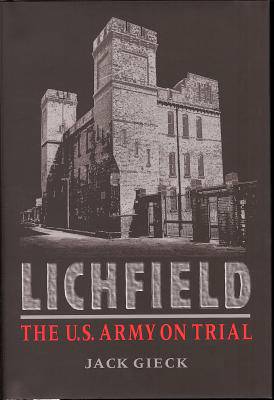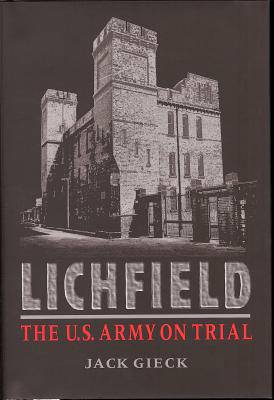
- Retrait gratuit dans votre magasin Club
- 7.000.000 titres dans notre catalogue
- Payer en toute sécurité
- Toujours un magasin près de chez vous
- Retrait gratuit dans votre magasin Club
- 7.000.0000 titres dans notre catalogue
- Payer en toute sécurité
- Toujours un magasin près de chez vous
40,45 €
+ 80 points
Format
Description
As a young officer, Jack Gieck attended sessions of a military trial that could rival in dramatic intensity such films as A Few Good Men. Years later, still fascinated by this clash of strong personalities, these courtroom intrigues, he began the extensive research that led to this book. Lichfield: The U.S. Army on Trial chronicles a series of courts-martial held at the end of World War II, precipitated by events at an infamous U.S. Army replacement depot near Lichfield, England, which the Army newspaper The Stars and Stripes characterized as a concentration camp run by Americans for American soldiers. Commandant of the facility was Regular Army Colonel James A. Kilian, who seemed dedicated to making his guardhouse a poor alternative to serving in combat. His nemesis in the courtroom, and in the book, was flamboyant Air Force Captain Earl Carroll, the assistant trial judge advocate. Carroll's convictions about the military justice system, expressed to the author decades later, make Dwight Eisenhower's warnings about the military-industrial complex sound tame. The book details the schemes and confrontations of the two adversaries as the trials lurch on, with witnesses voluntarily returning to the stand to purge themselves of perjury, and with a conspiracy brewing to create a mistrial. In its vivid portrayal of these events, the book becomes a study of the moral obligation of military personnel in time of war, an examination of the Nurnberg defense, and an inquiry into a soldier's right to refuse an unlawful order.
Spécifications
Parties prenantes
- Auteur(s) :
- Editeur:
Contenu
- Nombre de pages :
- 277
- Langue:
- Anglais
- Collection :
Caractéristiques
- EAN:
- 9781884836268
- Date de parution :
- 01-06-97
- Format:
- Livre relié
- Format numérique:
- Genaaid
- Dimensions :
- 160 mm x 234 mm
- Poids :
- 703 g

Les avis
Nous publions uniquement les avis qui respectent les conditions requises. Consultez nos conditions pour les avis.






